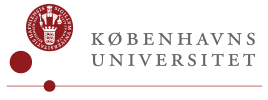Antarctica: Historic Drilling Campaign Reaches more than 1.2-Million-Year-Old Ice
An international team of scientists successfully drilled a 2,800-meter-long ice core, reaching the bedrock beneath the Antarctic ice sheet. These ice samples are expected to unveil, for the first time, critical details about Earth's climate and atmospheric history, extending beyond 800,000 years ago and showing a continuous record of the history of climate and greenhouse gasses as far back as 1.2 million years, and probably beyond.
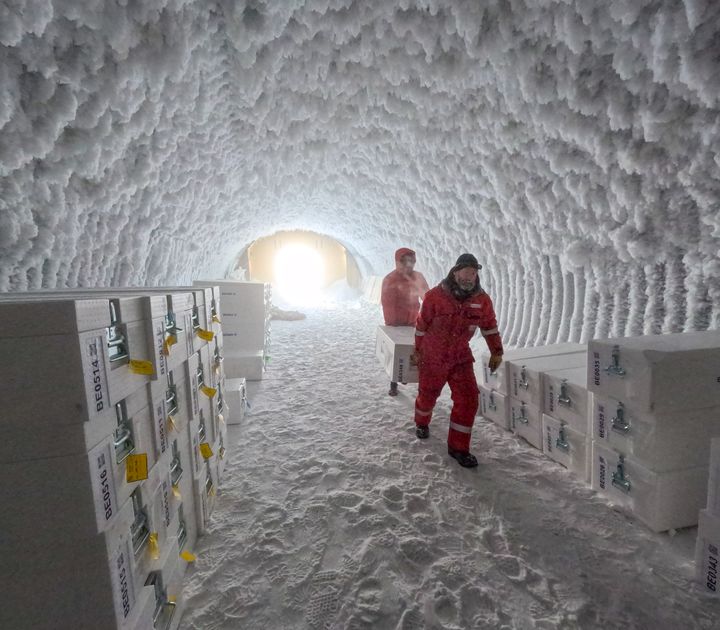
At the remote Little Dome C site in Antarctica, a research team representing twelve scientific institutions from ten European nations has just achieved a historic milestone for climate science. As part of the European-funded Beyond EPICA - Oldest Ice project, the team successfully concluded a multi-year drilling campaign, reaching the depth of 2,800 meters, where the Antarctic ice sheet meets the bedrock.
The extracted ice preserves an unprecedented record of Earth’s climate history, continuous information on atmospheric temperatures and pristine samples of old air with greenhouse gases spanning over 1.2-million-year-old ice and probably beyond.
“This is a great moment for climate and environmental science. This is the longest continuous ice core record of past climate, and we hope it can reveal the interlink between our planet’s carbon cycle and temperature,” comments Dorthe Dahl-Jensen, professor at the University of Copenhagen and the University of Manitoba.
The scientists expect for the first time to unveil critical details about Earth's climate and atmospheric history that extend beyond 800,000 years ago.
“From preliminary analyses recorded at Little Dome C, we have a strong indication that the uppermost 2480 meters contain a climate record that goes back to 1.2 million years in a high-resolution record where up to 13,000 years are compressed into one meter of ice”, reports Julien Westhoff, chief scientist in the field, postdoc at the Universirty of Copenhagen.
The lowest 210 meters of the ice core consists of probably even older ice that is heavily deformed, possibly mixed or refrozen, and of unknown origin. Advanced analyses could reveal East Antarctica's glaciation history, which the researchers aim to unravel.
Being able to look more than a million years back in time makes a crucial difference in climate science:
Around one million years ago, glacial-interglacial cycles slowed down from 41,000-year to 100,000-year intervals. The reasons behind this shift remain one of climate science's enduring mysteries. The researchers believe it is linked to greenhouse gases, which they can extract from the trapped air bubbles in the ice.
The ice drilling achievement was made possible through the extraordinary collaboration of various European research institutions and the dedicated work of scientists and logistical personnel in the field over the last ten years.
“Denmark, together with Germany and France, have provided the ice core drill used to drill the ice core and we are very proud of the successfully drilled ice core. It goes beyond our expectations and we are looking forward to tweezing the climate information from the ice cores together with all from the BEOI European team” concludes Dorthe Dahl-Jensen.
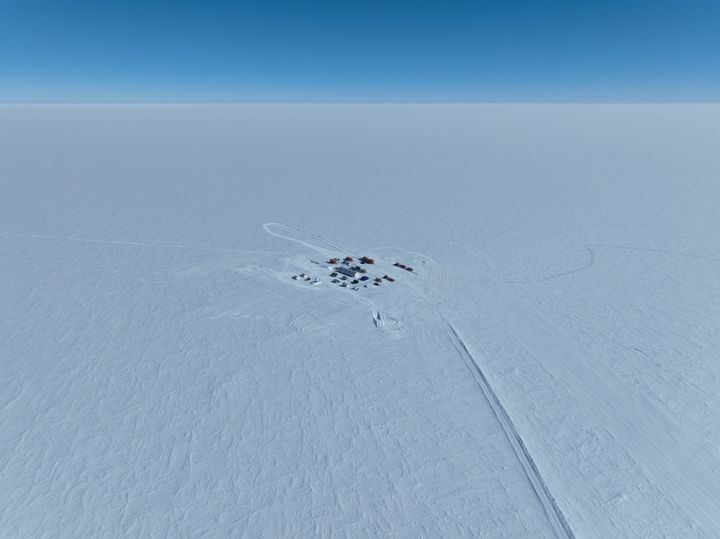
Participants in the 2024/2025 campaign: Université Libre de Bruxelles (BE): Lisa Ardoin; University of Bern (CH): Barbara Seth and Lison Soussaintjean; AWI (DE): Matthias Hüther, Manuela Krebs, Gunther Lawer, Johannes Lemburg, Martin Leonhardt, and Frank Wilhelms; University of Copenhagen (DK): Julien Westhoff; CNRS (FR): Marie Bouchet and Ailsa Chung; IPEV (FR): Inès Gay; ENEA (IT): Danilo Collino and Michele Scalet; Cnr-Isp (IT): Federico Scoto.
The Beyond EPICA (European Project for Ice Coring in Antarctica) - Oldest Ice project, coordinated by the Institute of Polar Sciences of the National Research Council of Italy (Cnr-Isp), has been funded by the European Commission and supported by national partners and funding agencies in Belgium, Denmark, France, Germany, Italy, Norway, Sweden, Switzerland, The Netherlands, and the United Kingdom.
To learn more about Beyond EPICA Oldest Ice project: https://www.beyondepica.eu/en/
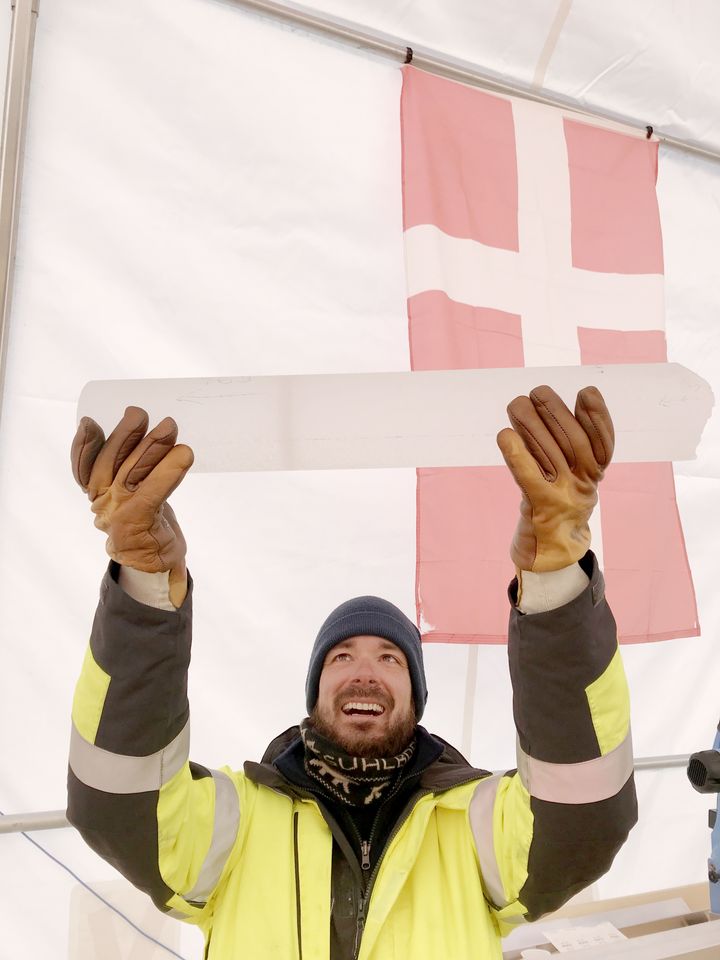
Photos and Videos of the Field Campaigns:
Download latest photos:
https://drive.google.com/drive/folders/1YHkb2L5MmKQ9Me8kISWvIaBwTNBrjqIA?usp=sharing
Beyond EPICA Field Seasons Gallery: https://www.beyondepica.eu/en/gallery/field-seasons/
Further information:
The University of Copenhagen (Denmark) – Dorthe Dahl-Jensen, Chair of the ice core science consortium, phone +45 2289 4537, e-mail: ddj@nbi.ku.dk
The University of Manitoba (Canada) – Dorthe Dahl-Jensen, phone +1 204 298 4561, email: Dorthe.dahl-jensen@umanitoba.ca
Scientific National Contact Points
- Lead Partner - ISP-CNR -The Institute of Polar Sciences of the National Research Council of Italy (Italy) – Project Coordinator - Carlo Barbante (Ca’ Foscari University of Venice and Cnr-Isp, e-mail: barbante@unive.it)
- AWI - The Alfred-Wegener Institute (Germany) - Frank Wilhelms (AWI and Göttingen University), e-mail frank.wilhelms@awi.de
- UKRI-BAS - The British Antarctic Survey (UK) - Robert Mulvaney, e-mail: rmu@bas.ac.uk
- IPEV - The French Polar Institute (France) – Yan Ropert-Coudert, e-mail: Yan.Ropert-Coudert@ipev.fr
- ENEA - The National Agency for New Technologies, Energy and Sustainable Economic Development (Italy) – Gianluca Bianchi Fasani, e-mail: gianluca.bianchifasani@enea.it
- CNRS - The National Scientific Research Centre (France) – Fréderic Parrenin, e-mail: frederic.parrenin@univ-grenoble-alpes.fr
- UU - The Utrecht University (Netherlands) – Roderik van de Wal, e-mail: r.s.w.vandewal@uu.nl
- NPI - The Norwegian Polar Institute (Norway) – Elisabeth Isaksson, e-mail: elisabeth.isaksson@npolar.no
- SU - The University of Stockholm (Sweden) – Margareta Hansson, e-mail: margareta.hansson@natgeo.su.se
- UBERN - The University of Bern (Switzerland) – Hubertus Fischer, e-mail: hubertus.fischer@climate.unibe.ch
- UCPH - The University of Copenhagen (Denmark) – Dorthe Dahl-Jensen, e-mail: ddj@nbi.ku.dk
- ULB - The Brussels University (Belgium) – Frank Pattyn, e-mail: fpattyn@ulb.ac.be
Keywords
Images
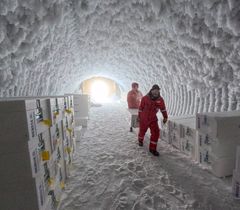
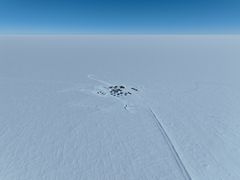
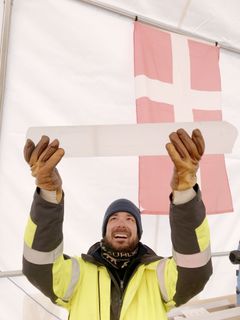
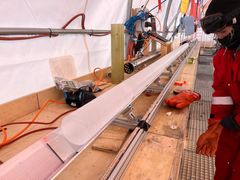
Links
ABOUT THE FACULTY OF SCIENCE
The Faculty of Science at the University of Copenhagen – or SCIENCE – is Denmark's largest science research and education institution.
The Faculty's most important task is to contribute to solving the major challenges facing the rapidly changing world with increased pressure on, among other things, natural resources and significant climate change, both nationally and globally.
Subscribe to releases from Københavns Universitet
Subscribe to all the latest releases from Københavns Universitet by registering your e-mail address below. You can unsubscribe at any time.
Latest releases from Københavns Universitet
KU-forskere indtager forsiden af Nature: Løser mysteriet om universets røde prikker14.1.2026 17:00:00 CET | Pressemeddelelse
Siden James Webb-teleskopet gik i luften, har røde prikker på billederne forundret videnskabsfolk verden over. Nu kan forskere fra Københavns Universitet forklare de gådefulde prikker, som gemmer på de voldsomste kræfter i universet skjult i en puppe af gas. Opdagelsen er udgivet i Nature i dag (onsdag d. 14/1.)
Ny forening sikrer stærkt fundament under Innovation District Copenhagen14.1.2026 08:00:00 CET | Pressemeddelelse
Innovation District Copenhagen skal være et internationalt kraftcenter for innovation og skal samle forskere, klinikere, iværksættere og virksomheder, så der udvikles flere nye løsninger og flere virksomheder inden for bl.a. life science og kvanteteknologi. En bred partnerkreds stifter nu en forening, der skal understøtte en langsigtet og bæredygtig udvikling af distriktet. Foreningen stiftes af repræsentanter fra stat, kommune, forskningsinstitutioner, sundhedssektor, erhvervsliv, finans, fonde og innovationsaktører. Med i stifterkredsen er Københavns Universitet
Danish chemist's invention could make counterfeiting a thing of the past8.1.2026 09:40:09 CET | Pressemeddelelse
Every year, companies lose billions of kroner when goods are copied or illegally resold. But a new digital and legally binding fingerprint developed at the University of Copenhagen makes products impossible to counterfeit. Royal Copenhagen is among the first brands in the world to use the solution.
Groundbreaking Mapping: How Many Ghost Particles All the Milky Way’s Stars Send Towards Earth8.1.2026 08:23:24 CET | Press release
Every second, a trillion of the elusive ghost particles, the neutrinos, pass straight through your body. Now, astrophysicists from the University of Copenhagen have mapped how many ghost particles all the stars in the Milky Way send towards Earth, and where in the galaxy they originate. This new map could help us track down these mysterious particles and unlock knowledge about our Galaxy that has so far been out of reach.
Banebrydende kortlægning: Så mange spøgelsespartikler sender alle Mælkevejens stjerner mod Jorden8.1.2026 08:15:33 CET | Pressemeddelelse
Hvert sekund passerer en trillion af de gådefulde spøgelsespartikler, neutrinoer, gennem din krop. Nu har astrofysikere fra Københavns Universitet kortlagt, hvor mange spøgelsespartikler alle Mælkevejens stjerner sender mod Jorden, og hvor i galaksen de kommer fra. Det nye kort kan hjælpe os med at finde de mystiske partikler og muligvis få hidtil utilgængelig viden om vores galakse.
In our pressroom you can read all our latest releases, find our press contacts, images, documents and other relevant information about us.
Visit our pressroom